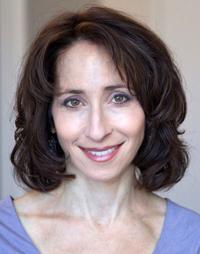 Posted: September 16, 2019
Posted: September 16, 2019
By Shelley Wong
Elissa Epel, PhD, a health psychologist, is interested in stress and how it gets under the skin to affect cellular and cardiometabolic health. She studies how the environment, social context, and mind states affect stress and metabolic health. With a group of colleagues, she has led an obesity research consortium, and now, with Aric Prather, PhD, she is co-leading the UC-wide Stress Free UC Study.
“Each UC campus has a different social, demographic, and geographical context,” Epel says. “In our study at different campuses, we will get to compare health and well-being. We will learn a lot about UCSF, and it won't necessarily translate to other campuses like UC Merced, which is more rural and has a majority-minority population. Each campus has its own issues, but stress is a common issue across campuses. Others include food insecurity, burnout, depression, and suicide risk, particularly in the student populations, but in the staff as well. And now, on top of that, everyone is facing looming threats from the climate and immigration crises. So we are in a remarkable period where our emotional well-being and our physiological state of balance are under threat, whether we realize it consciously or not.”
Epel is a professor of psychiatry; director of the Aging, Metabolism, and Emotions Center; director of the Consortium for Obesity Assessment, Study and Treatment; and associate director of the Center for Health and Community.
UCSF is a leader in understanding the impact of sugar intake on health and the social forces that lead disadvantaged groups to grow up in a food environment of excess sugar.
Elissa Epel, PhD
Professor of Psychiatry
She says, “My work revolves around trying to understand how early childhood and lifespan-challenging experiences pattern onto biology and impact health at every level – such as cellular aging and systemic metabolic health. Constructs like well-being and purpose in life are just as valid and reliable to measure as biochemical assays, and these have measurable effects on health and longevity.
“We have been particularly focused on compulsive eating and sugar intake, both in understanding the consequences and trying to intervene with mindfulness-based interventions,” says Epel. “UCSF is a leader (eg, Sugar Science Center) in understanding the impact of sugar intake on health and the social forces that lead disadvantaged groups to grow up in a food environment of excess sugar. Sugared beverage intake is linked to poorer sleep and shorter telomeres. Mindfulness-based interventions are particularly helpful for those with compulsive eating.”
With the support of the UCSF administration, Epel and colleagues had the opportunity to test what happens when sugar is changed in the work environment, in collaboration with UC Wellness and University of California Office of the President’s Healthy Campus Network, after UCSF and UCSF Health agreed to discontinue the sale of sugared beverages at the campuses and hospitals.
Epel, Laura Schmidt, PhD, and colleagues examined the impact of an environmental intervention on metabolic health for people most at risk (those who consumed at least one soda a day). They also randomized half of the people into a motivational, inspirational intervention to help them identify what they cared most about in terms of their future well-being. Results are forthcoming in JAMA Internal Medicine, and Epel hopes that they will be influential at other institutions.
“We conduct interventions to see how much people can improve their mental health, reduce stress, and slow biological aging,” she says. At the Aging, Metabolism, and Emotions Center, Epel and colleagues have a large range of clinical research studies to try to understand the important malleable factors for lifelong well-being and if they can be improved with individual interventions as well as more social-level interventions. Examples of individual-level interventions include exercise training (2018 research led by K award fellow Eli Puterman, PhD, showed that it lengthened telomeres) and stress reduction in UC employees (the Stress Free UC Study, which uses the Headspace meditation digital app).
Over 1200 people are enrolled in Stress Free UC, and participant experience is largely very positive. “The next question is, how can we take a digital intervention further to have a bigger impact on the campus, to help transform it from a culture of stress and time scarcity to a culture of well-being and compassion?” says Epel. “This takes environmental interventions that change the social or physical environment, in addition to the individual-level interventions – this is multi-level research. And culture change takes time, so we can’t expect any one intervention to be enough.”
In reflecting on her two-decade journey at UCSF, Epel says, “I came to UCSF in 2000. At the time, I could not possibly have done the clinical research that I did without what is now known as Clinical & Translational Science Institute (CTSI). It was an incredibly well-supported research resource, both with funded infrastructure, and with seasoned clinical researchers like Maurie Schambelan, and Lynda Frassetto, who were mentoring postdocs and junior investigators on how to do clinical research. Since then, there have been a lot of changes and we need to be honest that it is simply more challenging to be a clinical researcher at UCSF today, because of the dramatic cuts that the NIH has made in CTSI.”
She continues, “The amazing thing is that there have been so many devoted researchers and research administrators that keep CTSI going through thick and thin. I am appreciative of the major rehaul that Lindsey Criswell and others are doing to reduce obstacles and improve the clinical research pipeline, and in particular, clinical trials. This is why UCSF continues to be strong – our dedication to maintaining and growing our research community and trainees.”